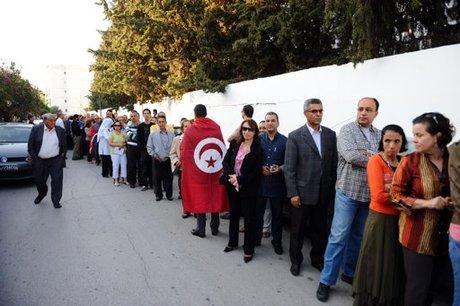After long-standing mass protest amongst the populace of Tunisia, the country seemed to exude a collective energy of relief and victory in its first-ever free election, held on Oct. 23.
What was so special about this election? Primarily, the turnout.
“Out of the 4.1 million people registered, more than 90 percent voted,” said Boubaker Ben Thaber, Secretary-General of the independent commission that organized the election, to Reuters News.
This is particularly astounding when considering the ongoing Arab uprisings amongst nations previously under oppressive Islamic rule.
“This number gives a clear signal that Tunisians are excited about their newly formed democracy,” said Deena Burris, assistant professor of business management. “Post-election protests over the disqualification of a candidate … however, further indicate that Tunisians are still wary of possible corruption in the election process.”
Indeed, unrest over political corruption is far from eradicated in Tunisia. Because of this, the transition to democracy may continue to be a rocky one.
This was exemplified by recent outbreaks of protest after the electoral triumph of the Ennahdha Party and the invalidation of the seats won by the Popular List Party, which came in fourth, according to the Sydney Morning Herald. Interestingly, the protests took place in the town of Sidi Bouzid, which was the setting for the original Arab Spring uprisings, which have taken surrounding regions by storm.
“It will be interesting to see what happens to many of the more liberal current policies in the country, such as women’s rights, under the newly elected Islamic Party,” commented Burris. “Especially given that the newly elected party seems uninterested in forming a coalition government with the two more leftist parties that came in second and third in the election.”
This concern certainly manifests itself in recent popular reactions to election proceedings, reactions which call for a party coalition and indicate a strong wariness in regards to Islamist political groups.
“Right now, the radicals seem to have gotten the most votes,” said Ken Gilmore, associate professor of political science. “However, they will have to form a coalition government with more moderate Islamic candidates. This is encouraging, for now. But disqualifying candidates of the fourth place party … is not a good sign of things to come.”
These divisions between Islamist and secularist groups may threaten the stability of Tunisia’s current election process. Still, the fact of the matter is that Tunisia has tackled a monstrous obstacle in the pursuit of full-fledged democracy; they have held a free and, until recently, peaceful election.
Likewise, this pursuit of democracy, now ringing clearly throughout the Tunisian population, is not an isolated movement. What could this mean for other surrounding countries, in their paths to just governments?
“Tunisia has already been the inspiration for people seeking democracy across Africa and the Middle East,” said Gilmore.
This spirit of democracy has already validated the voices of many. It could very well validate the voices of neighboring people in Libya and Egypt as well.
In any case, this is a time of rebirth for the Tunisian people, who continue fighting for the right to control their government.
As one man expressed to Reuters on Election Day, “This is an historic day. Tunisia was born today. The Arab Spring was born today.”

